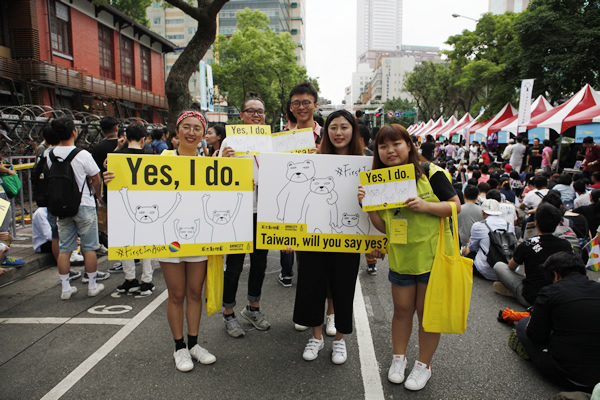Advocacy Groups Mark International Human Rights Day
Advocacy groups in the U.S. and around the world on Monday used the 70th annual International Human Rights Day to reaffirm their calls for LGBTI rights.“Today on the 70th Human Rights Day, we celebrate the global recognition that every human being is born with basic human rights and dignity that should never be violated,” said Human Rights Campaign Global Director Ty Cobb in a statement. “Yet, as an LGBTQ community, we still have a long way to go to achieving that goal. We need look no further than the humanitarian crisis happening at the U.S.-Mexico border, where the Trump-Pence administration is shamefully rejecting those who are fleeing violence in Central America — a good number of whom are members of the LGBTQ community. From Chechnya to Egypt to Indonesia, we will not stop until every member of our community, anywhere in the world, is safe, secure, and truly free and equal.”
International Human Rights Day commemorates the ratification of the Universal Declaration of Human Rights by the U.N. General Assembly on Dec. 10, 1948.
Upwards of 50 advocates from around the world traveled to New York last week and met with U.N. representatives during OutRight Action International’s annual Advocacy Week. Flávia Piovesan, a member of the Inter-American Commission on Human Rights, and Karamo Brown are among those who spoke at OutRight Action International’s annual summit that took place in Long Island City, N.Y., on Dec. 8.
“Advocacy week is where LGBTIQ voices and lived realities are amplified and delivered directly to the leaders and representatives who make international policy decisions,” said OutRight Action International Executive Director Jessica Stern in a press release. “Activists from around the world have the chance to make the most of these meetings and come together with fellow advocates to strategize and learn from each other.”
Secretary of State Mike Pompeo and U.S. Agency for International Development Administrator Mark Green on Monday both released statements that did not specifically refer to LGBTI rights. The International Human Rights Day statements that Canadian Prime Minister Justin Trudeau and Spanish Prime Minister Pedro Sánchez both referred to the LGBTI community.
“At home, we are working hard to build a country where all Canadians are free and safe to be themselves, and can go as far as their dreams will take them,” said Trudeau in his statement. “We continue to take concrete measures to fight racism and discrimination based on sexual orientation, gender identity and gender expression.”
This year’s International Human Rights Day commemorations are taking place against the backdrop of a series of LGBTI rights advances that have taken place over the last year. These include the India Supreme Court’s ruling in September that decriminalized consensual same-sex sexual relations and Chilean President Sebastián Piñera’s signing of a trans rights bill on Nov. 28.
Voters in Taiwan last month by a wide margin rejected efforts to extend marriage rights to same-sex couples. Violence and discrimination based on sexual orientation and gender identity remains commonplace in Central and South America and in many other parts of the world.

A referendum on whether to extend marriage rights to same-sex couples in Taiwan failed on Nov. 24, 2018, by an overwhelming margin. (Photo courtesy of Taiwan Tongzhi Hotline Association)
The Refugee Coalition of East Africa in its International Human Rights Day statement notes the anti-LGBTI crackdown in Tanzania that sparked outrage around the world. The organization also “encourages all those observing the (Universal) Declaration (of Human Rights) to further consider LGBTQI refugees around the world, and particularly those of us in regions where our existence, let alone our rights, are threatened.”
“We are trying to live, to work, to love, to survive, and to thrive as are all human beings,” reads the Refugee Coalition of East Africa statement. “For us, the threats and obstacle to these desires are a normalized part of our existence. Our rights are rarely acknowledged.”